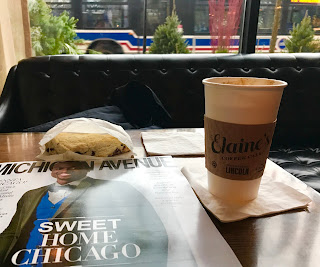Storage Units, Jamestown, NC
A house is a pile of
stuff with a roof over it. A home is
where love abides. I recently
drove past a cluster of storage units and it reminded me of renting one of
these units when we were transferred to North Carolina. Our Kansas City house like many others had a
full storage basement which was touted by the builder as the best square
footage value in the world. I guess that
would be true if it was put to good use, but we like so many ended up using the
space to slowly and steadily store all manner of unused possessions. We had moved my wife’s mother into an
assisted living unit by this time and our basement cache included all those sentimental
items of value that she no longer needed.
As life played out, neither did we.
Folks say that many times a job expands into the time available. It turns out that also applies to the
material things we possess which expand into the space that’s available.
Needless to say, when we
arrived in a state where basements were not practical, the first thing we had
to do was find extra storage room. We soon
found that we actually had no need for all these possessions after moving them
across the country and paying to store them.
So, we began giving them away to local charities for someone who could
actually use them. In retrospect, we
were paying to keep possessions that we had no need for anymore! That’s approaching one of the definitions of
insanity, which is what Jesus was referring to in his parable of the rich fool.
Jesus taught about the man who had not learned the life
lesson that “a man’s life does not consist in the abundance of his
possessions”. When the country gentleman had a bumper crop, his only thought
was how to keep his hold on it instead of sharing his great blessing with those
in need. So, he tore down his barns and built bigger barns to hold the great
harvest. His plan was to lay back, eat, drink and be merry. But that night his
life was demanded of him. What a sad legacy. His great harvest was
left for his heirs to divide and his legacy was that of greed and gathering for
himself instead of gratitude and gracious sharing with others.
Luke also records a chance meeting between Jesus and a rich
young man who had followed all the commandments and wanted to know what he must
do to inherit eternal life. Jesus knew
his heart and instructed him to sell all his possessions, give to the poor to
store treasure in heaven and follow him.
The young man went away sad, because he had great wealth. Folks don’t need to take this lesson
literally and sell everything, but possessions were obviously a first priority
and had morphed into a game changer.
Jesus taught people to store their treasure in heaven where no thief
comes near and no moth destroys. And as
with possessions, where you spend most of your time is that which you treasure
most.
For where your treasure is, there your heart will be also.




